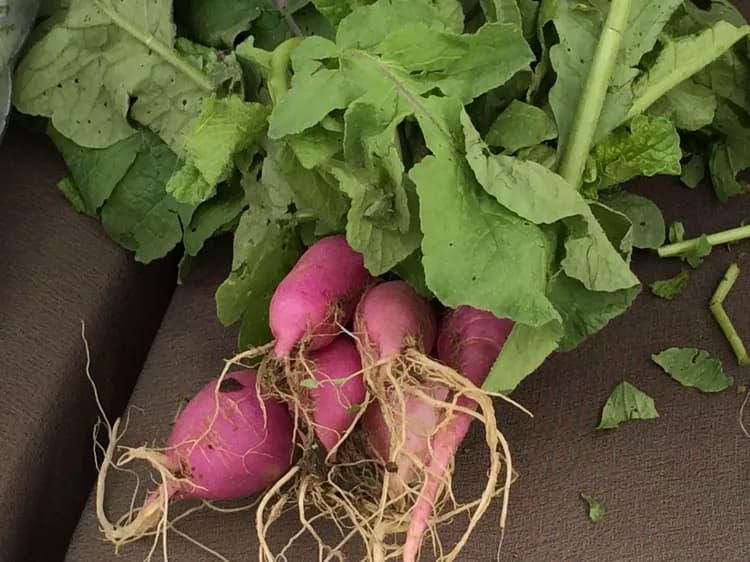A radish (Raphanus sativus) is an edible root vegetable of the Brassicaceae family that was domesticated in Europe. Radishes are grown and consumed throughout the world with numerous varieties, varying in size, color, and duration of required cultivation time. The root skin color ranges from white to pink, red, purple, yellow and green to black, but the flesh is typically white.
Here are 7 health benefits of the radish.
1. Radishes are low in calories.
Radishes are very filling and can satisfy hunger without increasing the calorie count. One cup (116 grams) of radishes contains only 19 calories.
2. Radishes can help treat diabetes.
The fiber in radishes can help control blood sugar levels. Also, radishes are very low on the glycemic index (GI). A low number in the GI shows that sugar slowly enters the bloodstream instead of spiking blood glucose levels.
3. Radishes can help provide a healthy digestive system.
The high fiber content in radishes helps induce regularity in bowel movements and alleviate symptoms of constipation. Radishes are known to promote the production of bile to help protect both the liver and the gallbladder.
4. Radishes can contribute to reducing symptoms of congestion.
Radishes can decrease congestion of the respiratory system, including irritation of the nose, throat, and lungs that can come from colds, infections, allergies, and other causes.
5. Radishes can help maintain proper blood pressure.
Radishes are high in potassium and low in sodium. This ratio has been positively correlated with reduced blood pressure because it interacts with the arterial supply of vascular beds, relaxes the blood vessels, and increases blood flow.
6. Radishes can help fight kidney disorders.
Radishes can assist in the treatment of many kidney disorders because it acts as a diuretic, helping wash away the toxins accumulated in the kidneys and they decrease the accumulation of toxins in the blood.
7. Radishes can contribute to treating leucoderma.
Leucoderma is a skin condition, an acquired condition with localized loss of pigmentation of the skin. The radish seeds can be used to treat leucoderma because of the detoxifying and anti-carcinogenic properties.
Related Articles
Test Your Knowledge
Asked by users
Related Centers
Related Specialties
Related Physicians
Related Procedures
Related Resources
Join DoveHubs
and connect with fellow professionals


0 Comments
Please log in to post a comment.